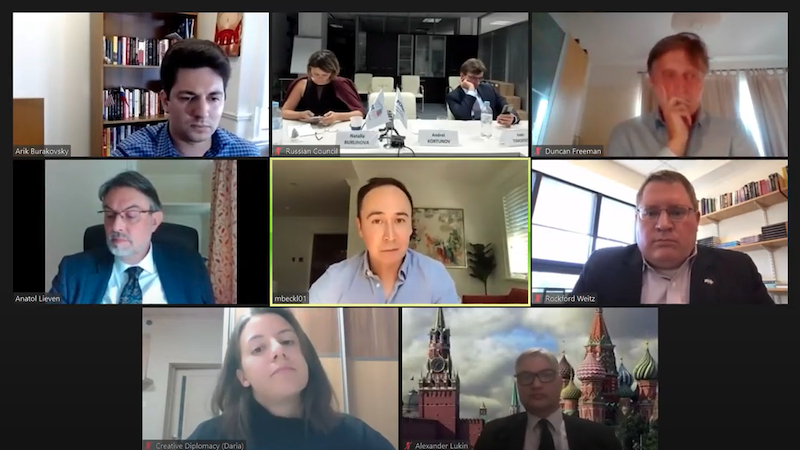
Tufts, European, and Russian Scholars Debate the Rise of China
By Alex Avaneszadeh, MALD 2023 Candidate, The Fletcher School
On September 21, 2021, The Fletcher School at Tufts University hosted the first round of the 2021 Kortunov Global Affairs Debates, titled “The Rise of China and the End of the Liberal World Order.” The annual debates are held in memory of Dr. Sergei V. Kortunov, a Russian political scientist and the author of numerous publications on national security and identity. The event was conducted in coordination with the Center for the Support and Development of Public Initiatives Creative Diplomacy (PICREADI) and the Russian International Affairs Council.
The debaters included four scholars: Michael Beckley, Associate Professor of Political Science at Tufts University; Duncan Freeman, Visiting Professor at Vrije Universiteit Brussel; Anatol Lieven, Professor at Georgetown University and King’s College London; and Alexander Lukin, Professor and Department Head of International Affairs at Higher School of Economics University.
The debate focused on whether the rise of China threatens the liberal international order. The talking points included how the liberal world order should be defined, whether it could exist without U.S. hegemony, if the liberal economic order is connected to political liberalism, and if China’s rise functions within or against this existing order. Prior to the debate, an audience poll was conducted and showed that a majority of the audience members considered that China is a threat to the liberal world order.
Beckley and Freeman argued that China is responsible for undermining the liberal world order, while Lieven and Lukin posited that a liberal world order to which China constitutes as a threat does not actually exist.
The debate began with Beckley’s claim that, “China is threatening to take us from a liberal trading order to an illiberal empire.” He described China as undermining the World Trade Organization, stealing other countries’ technological secrets, and international loansharking by extending debt to developing countries. He argued that these factors hold vulnerable countries hostage to the will of Beijing as it works to reverse the spread of democracy abroad.
Freeman affirmed Beckley’s arguments from a different perspective, arguing that the liberal order was never actually global in scale. He stated that the rise of China merely accentuated an already illiberal space, considering the weak geographic reach that liberalism had in East Asia.
Lukin’s position was that a liberal world order simply does not exist and has never existed.
He argued that the liberal world order is a “Western myth” and a “utopian idea of international order…created after World War II as a compromise between the winners of the war,” implying that the contemporary world system is simply a legacy and reflection of Western interests and not a truly fair and inclusive global order.
Similarly, Lieven stated, “China is against the Washington neoliberalist order, but not the capitalist order.”
He also highlighted China’s extraordinarily liberal economic policies, claiming that “the idea of a rules-based order is a fallacy through which the United States simply desires hegemony.”
Disagreeing with Beckley’s assertions about China, Lieven asked, “Which country has imposed sanction after sanction on country after country with no international backing? Which country has supported the most dictators in the world? Not China.”
Beckley admitted that the United States also sometimes undermines the liberal world order, but cited examples of China continuing to militarily breach the median line between China and Taiwan, and more frequently and aggressively confronting Indian military forces on the India-China border. He contended that China’s actions of violating other states’ sovereignty and escalating conflict are illiberal in nature.
Lukin also agreed that China is not innocent of pursuing malign policies, but added that “it is China which is being demonized by the West because…China’s existence and development undermines the U.S. ideology of so-called liberalism.” In response, Freeman noted that Chinese universalism is what undermines the liberal international order, which Lieven and Lukin continued to argue never existed.
The audience poll was taken again at the end of the debate, resulting in the majority of attendees shifting their vote in favor of Lukin and Lieven.
